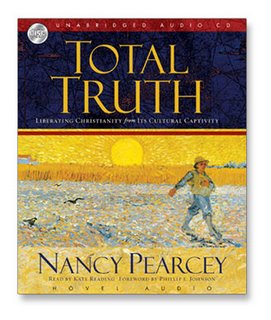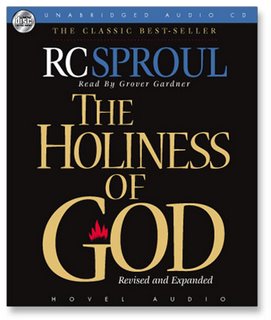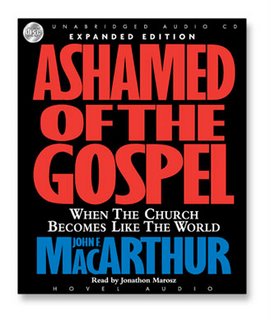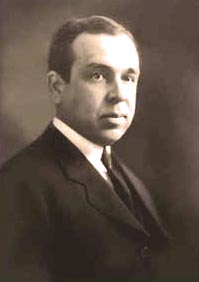As a follow up to my thoughts on the Desiring God Conference, I would like to share a little about what I experienced outside the conference, including meeting Larry Backlund, backpacking and photography excursion, and the drive.
Meeting Larry Backlund (again)
I never cease to be amazed at the providence of God. A couple months ago, I wrote about my disappointment with Billy Graham and his view of the gospel and salvation. In the meta of that post, I shared a little story of how I met a man named Larry Backlund, who at the time was Director of the Billy Graham School of Evangelism (BGSOE) for BGEA. Ironically, on my first solo trip, I went to Orlando, Florida to attend one of these schools during my sophomore year in college (Spring 1999). It was a common thing for the BGSOE staff to find a person have them as a prayer partner for that week. In the kindness of God’s plan, he sent Larry Backlund my way. That week was a life-changing week for me, and I was blown away that someone would take interest in an obscure college kid with nothing to offer.
Mr. Backlund and I kept in touch for about another year and then lost contact after a change in contact information. I always told Mr. Backlund that I was wanted to come up to visit him in Minneapolis but was well aware that the likelihood of me meeting Mr. Backlund was very slim. Yet it was not too slim for God. Just days after writing my article about Mr. Graham, Mr. Backlund googled his name and came across my post. He then emailed me and asked me if I was that college kid back from eight years ago, and I responded to him in the affirmative. Having already made plans for the DG Conference, I emailed Mr. Backlund and asked if we could meet for lunch while I was Minneapolis. Within a matter of days, not only was correspondence re-established with Mr. Backlund, I was going to see him again—only eight years later!
Well, our lunch was an amazing time. I sat and listened to a man who ministered for 30 years in the BGEA and dedicated his life to equipping people in sharing their faith. An interesting note is that my evangelism professor here at SBTS is Dr. Timothy Beougher who has also known Mr. Backlund for some time, having ties with the BGEA as well, and I was glad to get them reconnected as well. Mr. Backlund has gone on to retire after BGEA relocated to NC in 2003 but is still active in speaking and serving. In fact, in just a matter of weeks, he will be leaving for three strategic places in the Middle East (I won’t name the countries for his security’s sake) to encourage and minister to Christian leaders in these countries. Since his last trip, one of the leaders was charged with the crime of planting churches without the government’s permission and was later martyred. I ask that you remember him in your prayer as he prepares for the trip, that God would give him wisdom and Spirit-filled words, guard him from the enemy and keep him safe, and that he would be mightily used of God to build our brothers and sisters in a very volatile and difficult situation.
Mr. Backlund is a man whom I greatly admire. He is using his “retirement” days to minister and run his race so that the last chapter of his life is the best chapter of his life. I praise God for him and for men like him who have served the Church and ministered in the name of Christ so faithfully throughout the years. Before I left, I had the special privilege of praying for Mr. Backlund, and it was a moment that brought me back to when we first met—praying in the hallway of Orlando eight years ago. I hope to keep in touch with him and glean from his years of wisdom and grow in the grace and knowledge of our Lord and Savior Jesus Christ through this man’s example. My, what the sweet providence of God can bring your way!
North Shore
 Although I was hoping for some snow and ice, I must say that the North Shore lived up to its expectations. The weather was quite mild, and the fall color was excellent, yet I noticed that most of the colors were yellow and a little orange, quite different from here in the south where you get a lot of reds and even purple. There were plenty of overlooks and places to stop. One of the things I wish I had the opportunity to do was hike parts of the Superior Hiking Trail. It looked like a wonderful trail to explore. But as I mentioned earlier, my main purpose of this excursion was photographic, so I was constantly moving up and down the North Shore.
Although I was hoping for some snow and ice, I must say that the North Shore lived up to its expectations. The weather was quite mild, and the fall color was excellent, yet I noticed that most of the colors were yellow and a little orange, quite different from here in the south where you get a lot of reds and even purple. There were plenty of overlooks and places to stop. One of the things I wish I had the opportunity to do was hike parts of the Superior Hiking Trail. It looked like a wonderful trail to explore. But as I mentioned earlier, my main purpose of this excursion was photographic, so I was constantly moving up and down the North Shore.
On Monday afternoon, I spent a couple of hours at Split Rock Lighthouse just before sunset. The light was golden, the sky was clear, and the scenery was perfect. I thoroughly enjoyed hanging out there and walking down the shoreline. Leaving Split Rock, I went back to Gooseberry State Park to take some photos of Gooseberry Falls, one of the most popular tourist spots on the North Shore. After the sun had set, I set up camp and noticed that the moon was illuminating Lake Superior brilliantly, so I left to take some night shots of Lake Superior at Palisade Head, a huge cliff about 350 feet over Lake Superior in Tettegouche State Park. My plans were cut a little short there on Palisade Head because I had a drunk man suspiciously following me on a dangerous cliff, alone, with no cell signal, and on a windy road. You get the idea. So I went back to camp.
When I woke up the next morning, I thought I had overslept and missed the sunrise. After tearing down the tent and gathering my gear, I went to the car and noticed that the sun was just peering out over the waters, so I rushed to the car, dumped my stuff, and went along the shoreline to enjoy the morning sunrise and take a couple of photos. From there I proceeded up the North Shore, taking photos at places such as Tettegouche State Park and its sea caves, the High Falls of the Baptism River, Palisade Head, Cascade Falls, Caribou Falls, Cross River Falls, and the High Falls of the Pigeon River at Grand Portage State Park (half of which is in Canada). I finished shooting at Grand Portage around 5:30 p.m. and began the drive back and over to the Apostle Islands with plans to catch the last ferry over to Madeline Island to camp out at Big Bay State Park. However, inclement weather and a long-than-expected drive changed things as a projected 4 hour drive turned into a long, six hour drive. Consequently, I missed the last ferry departure and was forced to come up with a plan B—which was to sleep in my car.
Apostle Islands
Unfortunately, I did not have as much time as I had liked to tour the Apostle Islands, given that I had only half a day to drive around a hike a bit. I awoke in the small town of Bayfield and capture the sunrise at the docks where the ferry runs and then proceeded to Sand Bay, a beautiful vacation spot on the northern tip of the Apostle Islands National Lakeshore. Then, my last destination was to hike the trail along Meyers Beach on the west end and try to get up-and-close with some sea caves. Little did I know, it was more than a five mile hike, so I got my exercise in for the morning. One of things that amazed me about the North Shore and Apostle Islands is the small number of people touring or vacationing in such beautiful places. For hours on in during my hike, I neither heard nor saw anyone, and I remember that I felt like it was a crime that so few people enjoy such wonderful places that I was seeing. In all, I have no real regrets and was pleased with my trip. Of course, between the destinations was a lot of time in the car, which was also very profitable for me.
The Drive

All in all, I drove a total of 57 hours or 2,547.4 miles. That’s a lot of time! During this time, I listened to many sermons, including Josh Harris’ “Humble Orthodoxy” and Tim Keller’s “On Preaching the Gospel from the Reform & Resurge Conference which were both excellent. I highly recommend them to you. Also, I was able to catch up on all chapel SBTS chapel sermons from this semester. Moreover, most of my time was listening to audio books. The major book I listened to on the way up was James Sire’s The Universe Next Door, and on the way back, I listened to Stanley Grenz’s A Primer on Postmodernism. These two books were particularly helpful for my current studies as I am not where I need to be in my understanding of various worldviews and our current postmodern ethos. The British and Scottish accents of the narrations were a nice touch as well, but after eight CD’s respectively, the voices got on my nerves (I guess because I am from the South). If you are ever planning a long drive, let me recommend that you look into buying a good audio book. They kept my mind stimulated and thus kept me awake (which was really important!).
Note and Special Thanks:
On my way up to Minnesota, I found myself low on gas in the middle of Illinois. Because I was on an interstate, I thought I would find a gas station at any of the exits or at least could make it to the next big city. Unfortunately, after 30 miles on the interstate, there were no exits with gas stations, and I was another 20 miles from the next big city. With less than five miles left on my gas gauge reader, I pulled off at the next exit and was able to find a gas station. The only problem is that it had closed 11 minutes earlier! Not knowing what to do, I went to the only place I knew would be open – the emergency room entrance to the little hospital off a gravel road. There I found four really nice ladies who got me in touch with the local cop on duty who was able to retrieve a gallon of gas to get me to the next gas station (which was closed but had a pump open 24 hours to pay at the pump). Alone, out of gas, and in the middle of nowhere, I was a little nervous, but through the providence of God and the kindness of some folks in IL, I was able to make my way up to MN. So to the four ladies and officer of the small town of Hopedale, IL (ironically), I want to say a special thanks.
I also want to say thanks to Marc and Joe for letting me stay at your places during the trip. These are two men I have grown to love and appreciate and find myself always learning from them and laughing with them as we enjoy God and his gifts of friendship with one another.
I guess that’s it. The only thing that remains is next year’s fall photographic destination.
Any suggestions?














